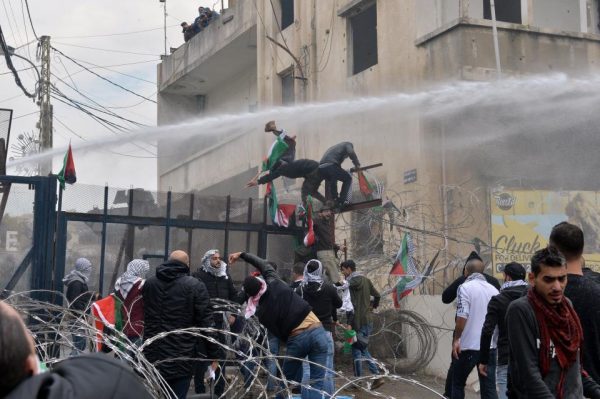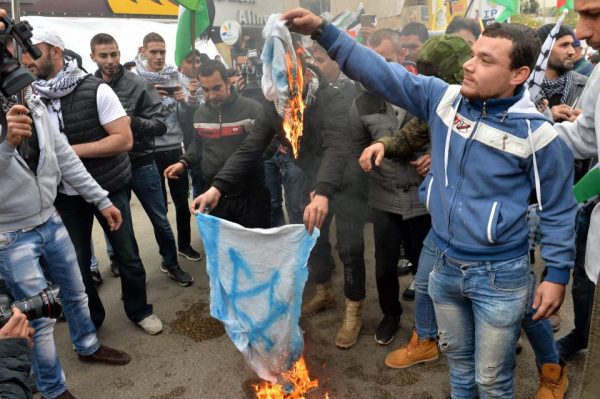
An Israeli security guard has been stabbed at Jerusalem’s main bus station and violence has flared near the US Embassy in Beirut over US President Donald Trump’s recognition of Jerusalem as Israel’s capital.
Four days of street protests in the Palestinian territories over Trump’s announcement on Wednesday have largely died down, but his overturning of long-standing US policy on Jerusalem — a city holy to Jews, Muslims and Christians — has drawn more Arab warnings of potential damage to prospects for Middle East peace.
“Our hope is that everything is calming down and that we are returning to a path of normal life without riots and without violence,” Israeli Defence Minister Avigdor Lieberman said on Army Radio.
But in Jerusalem, a security guard is in a critical condition after a 24-year-old Palestinian man stabbed him on Saturday at the city’s central bus station, police say.
The alleged assailant was taken into custody after a passer-by tackled him.
Turkish President Tayyip Erdogan, a critic of Israel, called it an “invader state” and a “terror state” in public remarks on Sunday.
Israeli Prime Minister Benjamin Netanyahu who spoke in Paris alongside French President Emmanuel Macron, fired back: ”I’m not used to receiving lectures about morality from a leader who bombs Kurdish villages in his native Turkey, who jails journalists, helps Iran go around international sanctions and who helps terrorists, including in Gaza, kill innocent people,” Netanyahu said.
Macron urged Netanyahu to make gestures to the Palestinians to break the impasse, and suggested a freeze of construction in settlements as a starting point.
“I asked Prime Minister Netanyahu to make some courageous gestures towards the Palestinians to get out of the current impasse,” Macron said.
Most countries consider East Jerusalem, which Israel annexed after capturing it in a 1967 war, to be occupied territory and say the status of the city should be decided at future Israeli-Palestinian talks.
Israel says that all of Jerusalem is its capital, while Palestinians want East Jerusalem as the capital of a future independent state.
The Trump administration has said it is still committed to reviving Palestinian-Israeli talks that collapsed in 2014, but jettisoning old policies is necessary to break the deadlock.
Washington says it has not taken a position on Jerusalem’s final status or borders, but it is sensible to recognise that any future peace deal will have Israel’s capital in the city. Palestinian President Mahmoud Abbas will not meet US Vice President Mike Pence during his visit to the region, Foreign Minister Riyad Al-Maliki said on Saturday.
The White House said on Sunday that decision was unfortunate and Pence looked forward to seeing Netanyahu and Egypt’s President Abdel Fattah al-Sisi.

“It’s unfortunate that the Palestinian Authority is walking away again from an opportunity to discuss the future of the region,” said Jarrod Agen, a spokesman for Pence.
In Beirut, Lebanese security forces have fired tear gas and water cannons at protesters near the US Embassy, while protests have also taken place in the Moroccan capital of Rabat and Indonesia’s capital, Jakarta.
Israel’s military says it’s destroyed a cross-border attack tunnel dug by Islamist group Hama along the Gaza Strip.
ECHO

Leave a Reply
You must be logged in to post a comment.